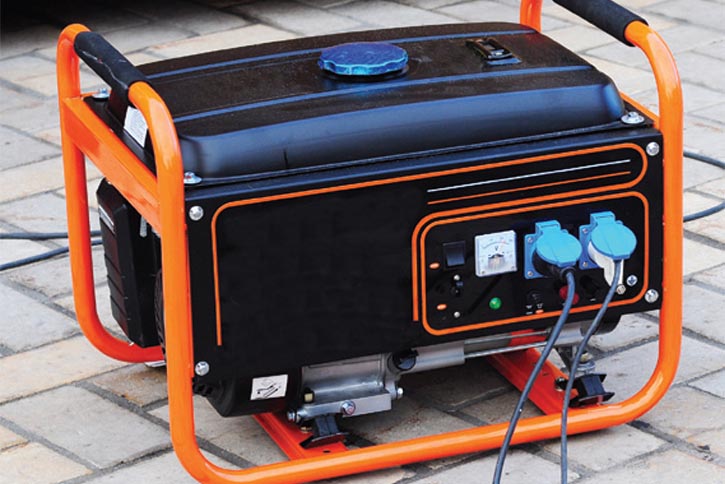
How 15 local seamstresses are bringing joy to terminally ill children
August 19, 2023
Sign up today for the Bayou Culture Collaborative August Gathering
August 20, 2023Portable generators are crucial tools in preparing for and enduring the challenges posed by hurricanes and other severe weather events. These devices provide much-needed electricity to power essential appliances and keep your household functioning when the grid fails. However, ensuring the reliable operation of your portable generator during such times requires proper maintenance. Here are five essential tips for maintaining your portable generator before a hurricane strikes, ensuring it’s ready to provide the power you need when you need it the most.
- Regular Inspections: Regular visual inspections of your portable generator are vital to identify any signs of wear, damage, or rust. Check the generator’s casing, fuel lines, and exhaust system for any visible issues. Make sure all parts are tightly secured and properly fastened. Additionally, inspect the spark plug and wires for any signs of corrosion. A clean and well-maintained generator is more likely to perform reliably during a hurricane.
- Fuel System Maintenance: The fuel system of your generator requires special attention to ensure optimal performance. Stale fuel can lead to starting issues and poor generator operation. Before a hurricane, make sure to replace the fuel in the tank with fresh, clean gasoline. Add a fuel stabilizer to help prevent the formation of gum and varnish in the carburetor. Run the generator for a few minutes to ensure the stabilized fuel reaches the carburetor and other fuel system components.
- Oil Check and Change: Regular oil changes are essential for maintaining the longevity and efficiency of your generator’s engine. Check the oil level and quality according to the manufacturer’s instructions. If the oil appears dark or dirty, it’s time for an oil change. Use the recommended type of oil specified in the user manual. Always follow the proper procedures for draining and refilling the oil, and dispose of used oil in an environmentally friendly manner.
- Air Filter Cleaning: A clogged air filter can restrict airflow to the engine, leading to reduced performance and increased fuel consumption. Check the air filter and clean or replace it as needed before a hurricane hits. Cleaning the air filter can usually be done with compressed air or by tapping it gently to remove debris. If the filter is damaged or excessively dirty, replace it with a new one to ensure optimal engine performance.
- Test Run and Load Test: Before a hurricane strikes, it’s crucial to test your generator’s functionality. Start the generator and let it run for a few minutes to ensure it starts smoothly and operates without any unusual sounds or vibrations. Additionally, perform a load test by connecting a few essential appliances to the generator to simulate the actual load it would bear during a power outage. This practice not only ensures your generator’s readiness but also helps you identify any potential issues beforehand.
Proper maintenance of your portable generator is a crucial step in preparing for hurricane-related power outages. By regularly inspecting and maintaining your generator’s various components, you can ensure that it’s ready to provide reliable power when it’s needed the most. By following the five tips outlined in this article—conducting regular inspections, maintaining the fuel system, checking and changing the oil, cleaning the air filter, and conducting test runs—you’ll be well-prepared to face the challenges of a hurricane with a dependable source of backup power.




